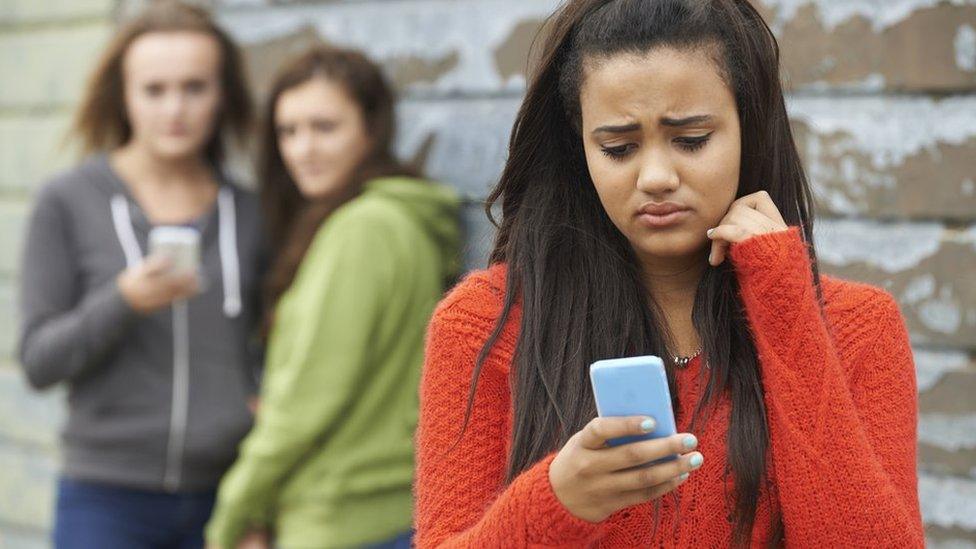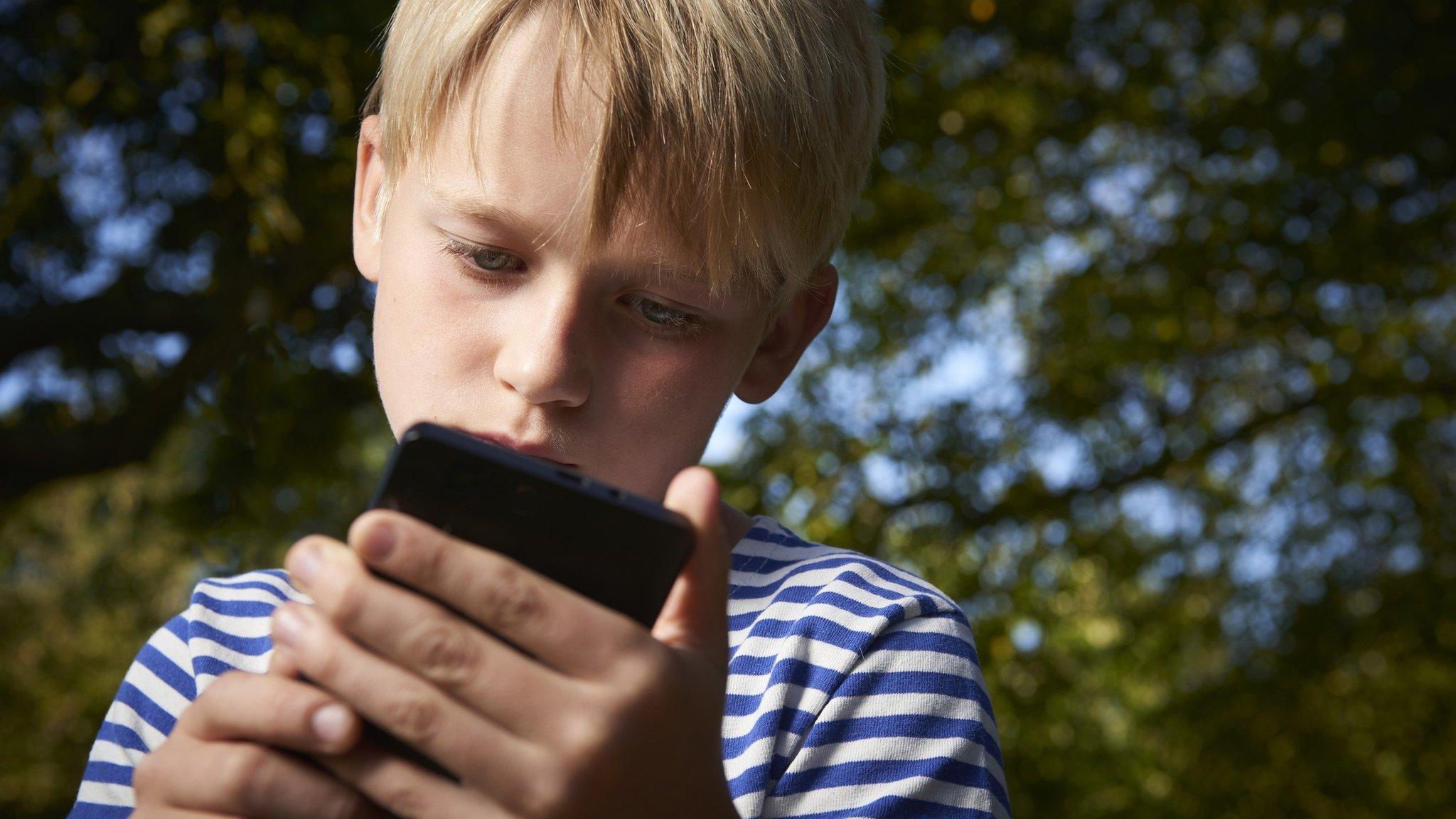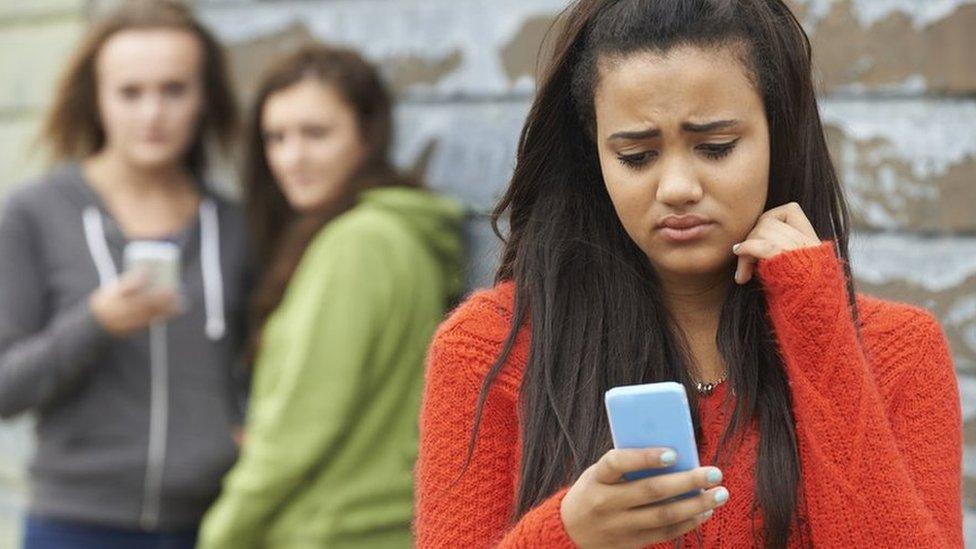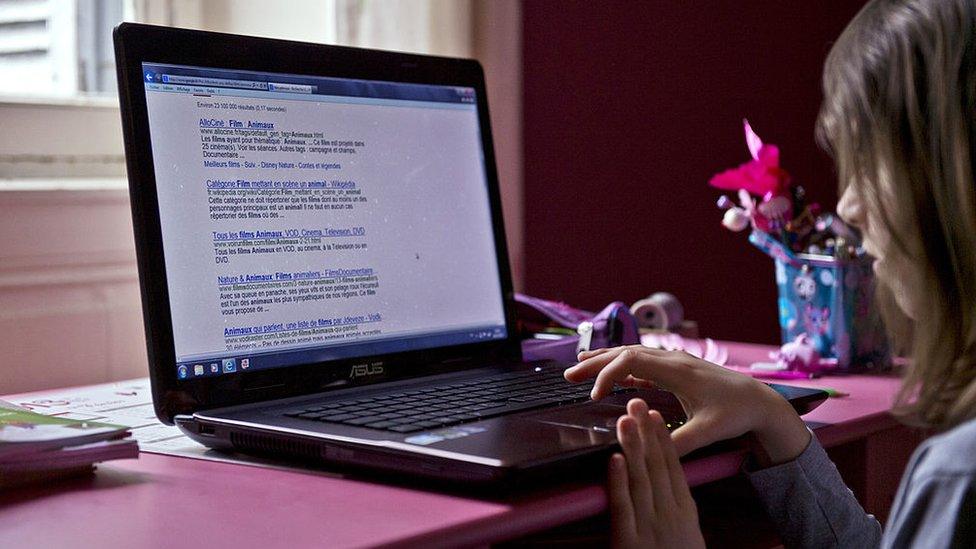Children 'don't feel safe online', study finds
- Published

Ask.fm and Facebook were rated among the riskiest social media sites
Four in five children in the UK think social media companies are not doing enough to protect them online, according to a study.
They said they were being exposed to inappropriate images, messages of self-harm and bullying.
The NSPCC surveyed 1,696 11- to 18-year-olds, who rated Ask.fm and Facebook among the riskiest sites.
Ask.fm said it took the report "seriously" and had contacted the charity to "discuss the findings".
A spokeswoman from the website said: "We recognise our responsibility and continually strive to improve our tools and polices to protect our users."
'Not shielded'
The children were asked questions on their experiences of signing up to the app, site or game, to assess how appropriate the content was for their age group, and say whether they were able to report and block people, change privacy settings and contact support.
One 16-year-old girl was asked to review Ask.fm, a site where users ask each other questions, and said: "It had no strict controls which led to lots of hurtful messages being spread about people, which I believe contributed to people self-harming or just feeling negative about themselves."
Of those surveyed, 1,380 children said social media sites needed to do more to keep them from coming across inappropriate or harmful content.
Children also rated Omegle, which randomly pairs users to have one-to-one conversations, and IMVU, a 3D virtual world which allows people to talk via avatars.
An 18-year-old boy who uses IMVU said he liked "getting to be myself".
"Picking how I look, and how I present myself to people. I enjoy talking to people that don't know me."
The research is part of the NSPCC's Net Aware programme, external to give advice to parents about the risks of children using websites.
NSPCC chief executive Peter Wanless said: "Children do not feel that they are shielded from upsetting, dangerous, and adult content.
"It's vital parents know about their child's online world and regularly talk with their children about how to get help if they need it."
Tech savvy teachers
Mr Wanless admitted it can feel "nearly impossible" for parents to keep up with their children's social media use because of how fast the internet is developing.
In January, the children's commissioner for England said the internet was not designed for children. Anne Longfield urged companies to simplify their terms and conditions so young people would know what they were signing up to.
A few months later, Lib Dem peers told MPs that schools needed to have staff who were "really up to date with technology".
However, former government mental health tsar Natasha Devon told the health and education committees that children were getting around ways to control their online activity by owning multiple handheld devices.
Onus on users
Facebook said the safety of young people is a "priority" for them and that they have resources for parents and users to prevent bullying and harmful content from being accessed on their site.
Omegle's company website, external warns people to use the site at their own peril but to disconnect with someone if they feel uncomfortable.
By using the site, it said people agreed to behave in a certain way including not transmitting nudity or sexually harassing anyone. But the company said people were "solely responsible for their own behaviour".
The BBC also contacted IMVU for a response to the NSPCC's findings.
- Published16 November 2016

- Published7 February 2017

- Published5 January 2017
